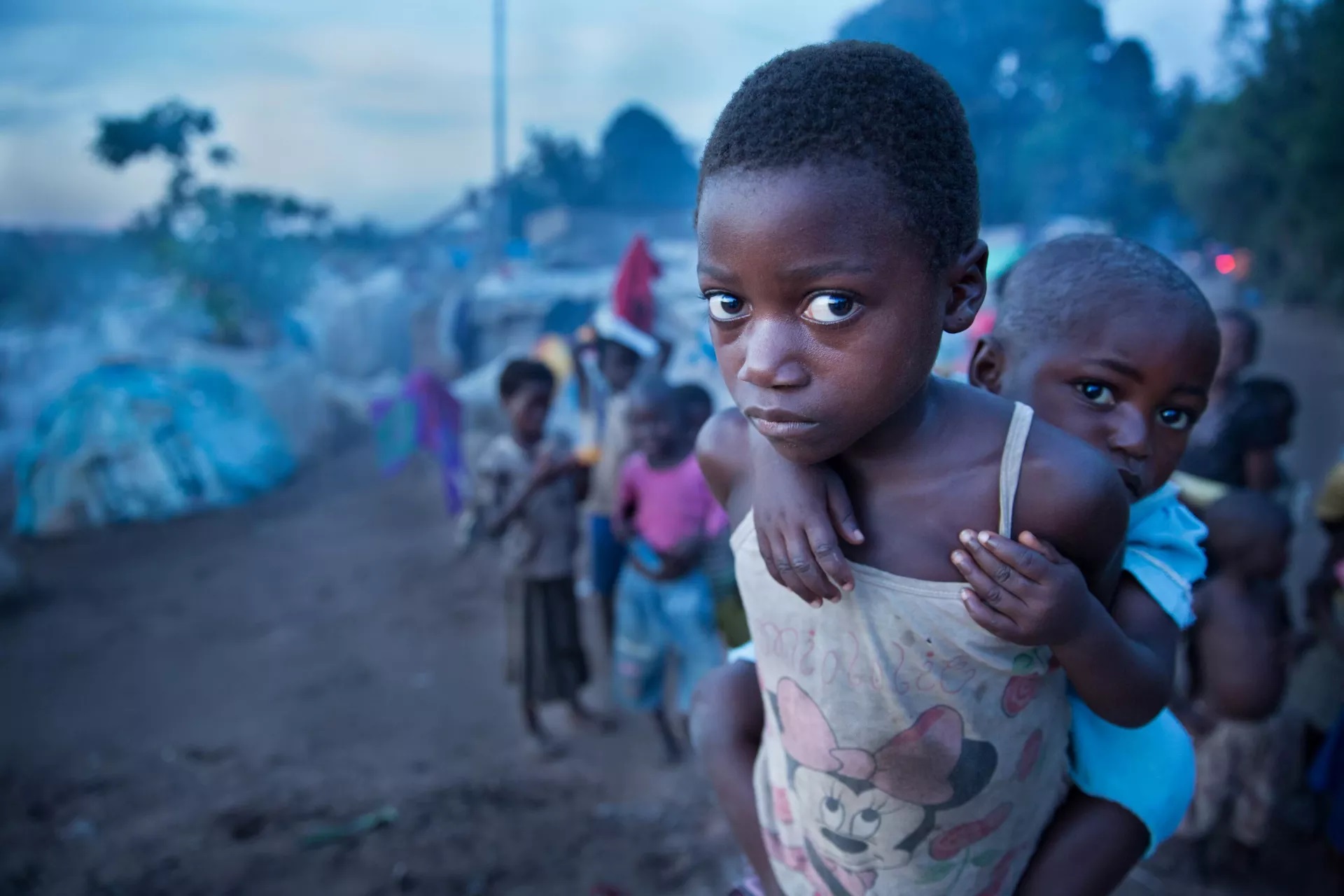By; Victor Ekpenyong PA @ GIPLC
The dust in Maiduguri has a particular taste, a gritty mix of sand, heat, and an unspoken, combined grief. It’s a taste many children know too well. On a good day, my friend’s world dissolved into noise and chaos. Just as a lot of children remember the sound of the explosion itself, only the deafening silence that followed, a silence that swallowed his father’s and eldest brother’s voices whol

Rising Awareness of Psychological Trauma Among Orphans and Conflict Survivors.
Now, somewhere within or on the outskirts of the city, Timothy’s roaming became a thing of comfort to him. He sits in a corner, talking to himself for hours, holding a burden of pain he has no words for. He is one of thousands in a humanitarian report, a face in a crowded photo. But his story, and the silent screams echoing in his mind, represent the deepest, most overlooked wound of conflict, which is Psychological Trauma.
For decades, the narrative surrounding orphans and survivors of violence, particularly in regions like Northeast Nigeria grappling with the Boko Haram insurgency and herdsmen attacks, has been primarily obvious. The majority directed their aid towards the tangible: food, water, camp, and medicine. A lot of children were saved from starvation, treated for malaria, and vaccinated against polio as acts of survival. Though we forget to ask the big question: “What happens to the mind that witnessed the terror?” The heart that shredded into a million pieces? The soul that returns into its silent shell, like Timothy?
There’s a need for a shift to be underway. Awareness should be raised, recognizing that saving a life is only the beginning, while mending the invisible scars is the real healing.
THE UNSEEN BATTLEFIELD

THE UNSEEN BATTLEFIELD
Timothy’s story is not unique to Nigeria, as conflict emerges on the streets of Ukraine, the camps in Syria, regions of Myanmar, and forgotten villages in the Democratic Republic of Congo. Generations of children are growing up with conflict as their first memory and become carriers of a heavy, invisible burden, Complex Post-Traumatic Stress Disorder (C-PTSD), anxiety, depression, and profound attachment disorders even as survivors.
The Nigerian context paints a stark picture. The UNICEF report states that a staggering 1 in 4 children in conflict zones in Nigeria show signs of acute psychological distress. That’s not a statistic; that’s a classroom of like numb Timothy, a generation navigating a world they feel unsafe around. Their trauma manifests not aloud, but in whispers: in bedwetting age, misunderstanding over a shared toy, the lack of zeal to trust someone trying to help them, paving the way for depression and retreat at an early age.
For a long time now, this behavior was misunderstood, and then they as tagged as “stubborn,” or “shy.” “They are vulnerable but innocent, and then would bounce back.” This was the dangerous belief installed in us—that a child’s mind could be stretched to its absolute limit and simply snap back into shape. The truth is that it doesn’t snap back but grows, creating trauma, shaping a child’s view of the world, their building of relationships, and their future.
THE WHISPERS OF CHANGE: A NEW KIND OF CARE.

THE WHISPERS OF CHANGE: A NEW KIND OF CARE.
The turning point, the beginning of this global awareness, often starts with someone who chooses to look closer. Someone who goes out of his comfort zone and his way to pay attention to these vulnerable children.
In Nigeria, organizations like UNICEF, Save the Children, and local heroes like the Neem Foundation are tirelessly training caregivers, teachers, and even community leaders in these principles. They are integrating mental health and psychosocial support (MHPSS) into every level of humanitarian response.
The tools are simple yet profound:
– Play Therapy: Allowing children to express the inexpressible through toys and sandboxes, giving form to their monstrous memories.
– Art and Music Therapy: Offering crayons and drums as microphones for emotions too loud for words.
– Storytelling and Narrative Therapy: Helping children rewrite their narratives not as victims, but as survivors, as heroes of their own journey.
– Training Foster Parents and Caregivers: Educating them on triggers, on how to respond to night terrors not with frustration, but with soothing reassurance, building islands of safety in a child’s turbulent internal sea.
THE LONG ROAD HOME
Healing is not a straight line. It’s a winding, arduous path with its share of setbacks and triumphs. The application of Narrative Exposure Therapy will gently help vulnerable children compile their story together in a safe box, allowing them to become the authors of their own past rather than its prisoners.
The goal of Narrative Exposure Therapy is not to erase the memory, which is almost impossible to do. It is to integrate the trauma, so they can carry their past without being doomed by it. It is to help them know that while their world once seemed like it ended, a new one is being built, brick by brick, with love, patience, and genuine care.
A GLOBAL RESPONSIBILITY

A GLOBAL RESPONSIBILITY
The rising awareness of psychological trauma is progressing in the world of humanitarian aid. But awareness is not enough, as it must be met with proper action and funding. Mental health support cannot be secondary, which comes after the food and medicine are sorted. It is very critical like the clean air that we need to breathe, and the foundation upon which all other recovery is built.
Timothy’s journey back to himself is far from over. He still has bad days where the memories are loud and the world feels threatening. But he also has days where he laughs, a sound his caregivers now cherish as their most hard-won reward. He is learning, slowly, that his voice matters.
His story, and the stories of countless children like him in Nigeria and across the globe, is a powerful call to our collective conscience. We have learned to save their lives. Now, we must honor them by dedicating ourselves to the quieter, slower, deeper work of saving their minds and healing their hearts. For in their healing lies the only true hope for a future where the cycles of violence are finally broken, not by force, but by the profound, resilient power of a mended spirit. The dust of conflict may settle, but we must ensure it does not settle on a generation lost to silence. We must help them find their voice again.
SUMMARY
This article highlights the critical shift in global humanitarian focus from solely addressing the physical needs of orphans and conflict survivors to recognizing and treating their deep psychological trauma. Using the poignant story of Timothy, a young Nigerian boy rendered silent by violence, it illustrates how trauma manifests in children and argues that mental healthcare is as vital as food or medicine. The piece emphasizes the growing, yet still underfunded, implementation of trauma-informed care using play, art, and narrative therapy to help children process their experiences. It concludes that healing these invisible wounds is essential for breaking cycles of violence and building a truly resilient future for survivors in Nigeria and around the world.

